Snapshot of DNA repair
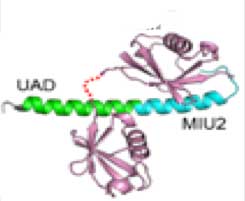 Scientists describe the crystal structure of RNF168 bound to ubiquitin chains, a crucial interaction for DNA repair, to find a unique interaction.
Scientists describe the crystal structure of RNF168 bound to ubiquitin chains, a crucial interaction for DNA repair, to find a unique interaction.
Jan 16th, 2018
Read more
 Subscribe to our Biotechnology News feed
Subscribe to our Biotechnology News feed
 Scientists describe the crystal structure of RNF168 bound to ubiquitin chains, a crucial interaction for DNA repair, to find a unique interaction.
Scientists describe the crystal structure of RNF168 bound to ubiquitin chains, a crucial interaction for DNA repair, to find a unique interaction.
Jan 16th, 2018
Read more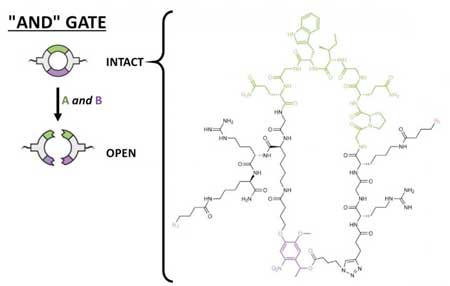 Scientists have built and tested a new hydrogel that will encase a desired cargo and dissolve to release its freight only when specific physiological conditions are met.
Scientists have built and tested a new hydrogel that will encase a desired cargo and dissolve to release its freight only when specific physiological conditions are met.
Jan 15th, 2018
Read more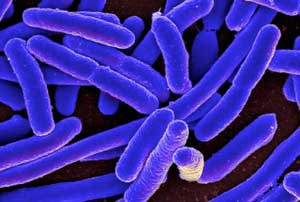 Gene promoter library allows for precise tuning of genetic inputs, outputs.
Gene promoter library allows for precise tuning of genetic inputs, outputs.
Jan 11th, 2018
Read more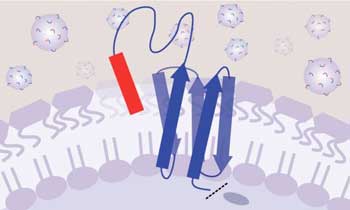 Biologists have developed a method for rapidly screening hundreds of thousands of potential drugs for fighting infections, an innovation that holds promise for combating the growing scourge of antibiotic-resistant bacteria. The method involves engineering bacteria to produce and test molecules that are potentially toxic to themselves.
Biologists have developed a method for rapidly screening hundreds of thousands of potential drugs for fighting infections, an innovation that holds promise for combating the growing scourge of antibiotic-resistant bacteria. The method involves engineering bacteria to produce and test molecules that are potentially toxic to themselves.
Jan 9th, 2018
Read more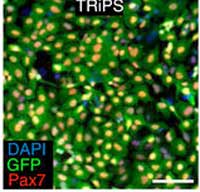 First functioning human muscle grown from induced pluripotent stem cells holds promise for cellular therapies, drug discovery and studying rare diseases.
First functioning human muscle grown from induced pluripotent stem cells holds promise for cellular therapies, drug discovery and studying rare diseases.
Jan 9th, 2018
Read more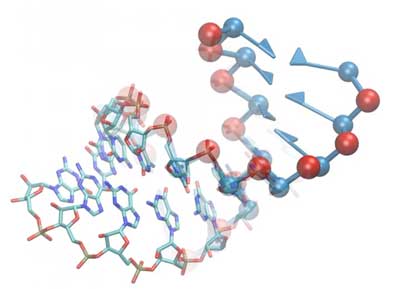 A new study develops an innovative simulation model able to efficiently predict the conformation of ribonucleic acid molecules opening up interesting opportunities for application and research.
A new study develops an innovative simulation model able to efficiently predict the conformation of ribonucleic acid molecules opening up interesting opportunities for application and research.
Jan 4th, 2018
Read more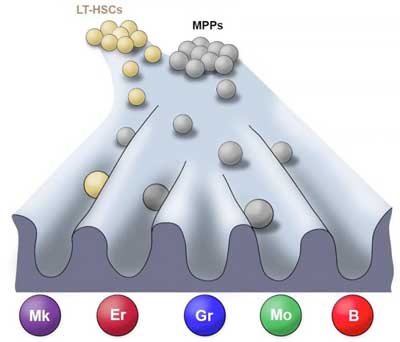 Use of labeling technology in mice leads to discoveries in process of natural blood formation.
Use of labeling technology in mice leads to discoveries in process of natural blood formation.
Jan 3rd, 2018
Read more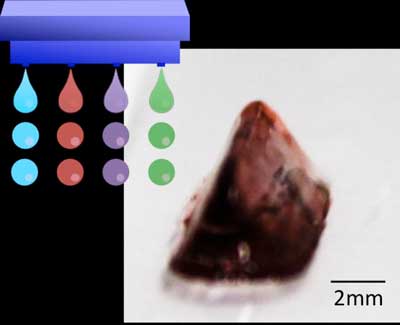 Researchers refine method of making bio-ink droplets stick to each other, enabling 3D printing of highly complex biological structures with a wide variety of cell types using inkjet printers.
Researchers refine method of making bio-ink droplets stick to each other, enabling 3D printing of highly complex biological structures with a wide variety of cell types using inkjet printers.
Dec 27th, 2017
Read more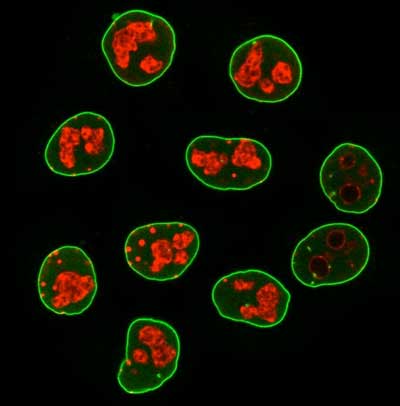 Scientists have developed so-called secondary nanobodies that can replace the most-used antibodies and may drastically reduce the number of animals in antibody production. This is possible because the secondary nanobodies can be produced in large scale by bacteria.
Scientists have developed so-called secondary nanobodies that can replace the most-used antibodies and may drastically reduce the number of animals in antibody production. This is possible because the secondary nanobodies can be produced in large scale by bacteria.
Dec 21st, 2017
Read more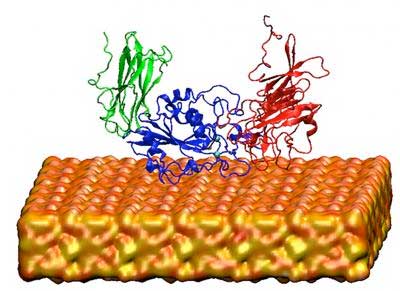 Some secrets to repair our skeletons might be found in the silky webs of spiders, according to recent experiments guided by supercomputers.
Some secrets to repair our skeletons might be found in the silky webs of spiders, according to recent experiments guided by supercomputers.
Dec 19th, 2017
Read more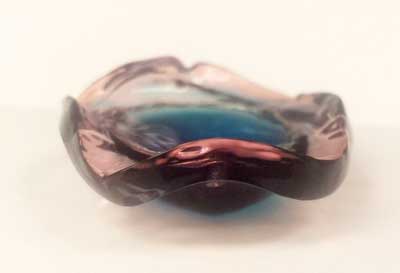 Opens up new possibilities in tissue engineering and soft robotics.
Opens up new possibilities in tissue engineering and soft robotics.
Dec 19th, 2017
Read more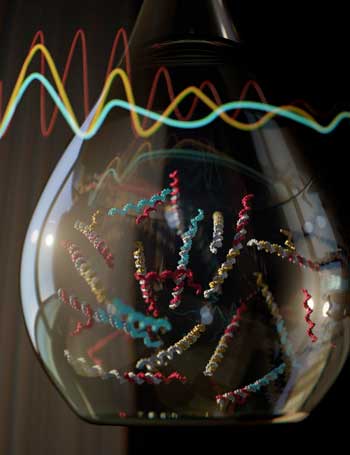 Researchers successfully constructed a first-of-its-kind chemical oscillator that uses DNA components. DNA molecules that follow specific instructions could offer more precise molecular control of synthetic chemical systems, a discovery that opens the door for engineers to create molecular machines with new and complex behaviors.
Researchers successfully constructed a first-of-its-kind chemical oscillator that uses DNA components. DNA molecules that follow specific instructions could offer more precise molecular control of synthetic chemical systems, a discovery that opens the door for engineers to create molecular machines with new and complex behaviors.
Dec 14th, 2017
Read more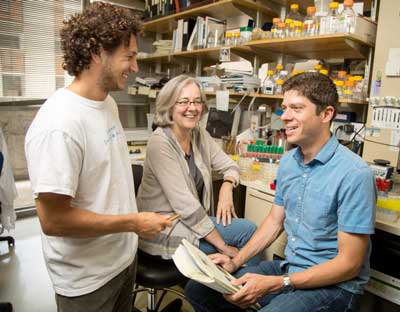 Scientists develop new approach to identify important undiscovered functions of proteins.
Scientists develop new approach to identify important undiscovered functions of proteins.
Dec 14th, 2017
Read more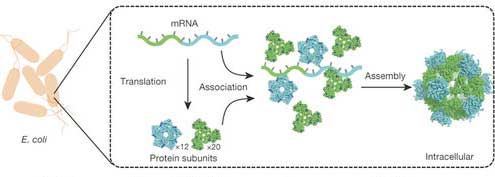 Computationally designed protein assemblies are advancing research in synthetic life and in targeted drug delivery.
Computationally designed protein assemblies are advancing research in synthetic life and in targeted drug delivery.
Dec 14th, 2017
Read more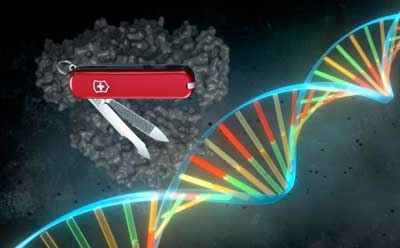 Researchers have visualized the atomic structures of the Cpf1 and Cas9 proteins to analyse each of their properties and peculiarities that make them ideal for different applications in gene modification.
Researchers have visualized the atomic structures of the Cpf1 and Cas9 proteins to analyse each of their properties and peculiarities that make them ideal for different applications in gene modification.
Dec 11th, 2017
Read more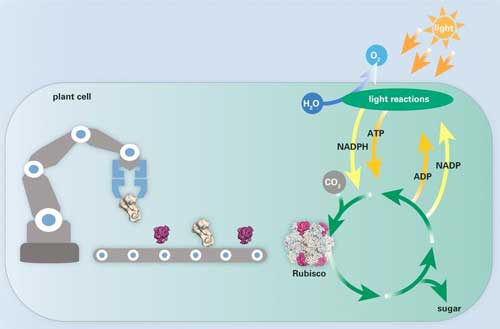 Scientists aim to boost photosynthesis to meet the increasing global demand for food by engineering its key enzyme Rubisco. Now, researchers have succeeded in producing functional plant Rubisco in a bacterium. This allows genetic engineering of the enzyme.
Scientists aim to boost photosynthesis to meet the increasing global demand for food by engineering its key enzyme Rubisco. Now, researchers have succeeded in producing functional plant Rubisco in a bacterium. This allows genetic engineering of the enzyme.
Dec 8th, 2017
Read more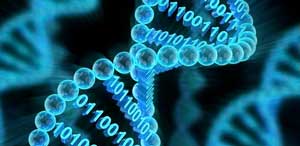 Biology is becoming increasingly digitized. Researchers like us use computers to analyze DNA, operate lab equipment and store genetic information. But new capabilities also mean new risks - and biologists remain largely unaware of the potential vulnerabilities that come with digitizing biotechnology.
Biology is becoming increasingly digitized. Researchers like us use computers to analyze DNA, operate lab equipment and store genetic information. But new capabilities also mean new risks - and biologists remain largely unaware of the potential vulnerabilities that come with digitizing biotechnology.
Dec 7th, 2017
Read more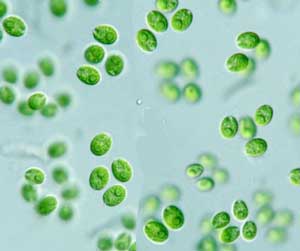 Vast quantities of medicines and renewable fuels could be produced by algae using a new gene-editing technique, a study suggests.
Vast quantities of medicines and renewable fuels could be produced by algae using a new gene-editing technique, a study suggests.
Dec 7th, 2017
Read more